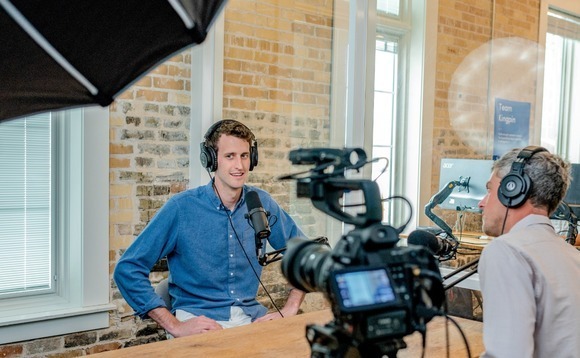
Fundraising talent: New calls of duty

The trend toward more stringent due diligence in recent years has maximized fundraising complexity at a time when the professionals involved must adapt to unfamiliar virtual forums
The bedrock of any fundraising process has historically been in-office facetime between GPs and LPs. With COVID-19 changing those dynamics, CFOs, COOs, and other investor relations personnel have had to rethink the mechanics of this function and, in some ways, overhaul their job descriptions.
In time, this may prove especially true in Asia. According to an industry survey published this week by fund administrator Intertrust Group, China is setting much of the tone in terms of the adoption of highly connected, pandemic-ready IR tactics. About 80% of CFOs in the country said they expect their LPs to demand access to portfolio performance updates on a live or daily basis over the next decade.
"With border restrictions making fundraising roadshows and on-site due diligence harder, GPs are looking for any edge to secure capital commitments, and this means going above and beyond to meet documentation requests from potential LPs," says James Donnan, a Hong Kong-based managing director at Intertrust. "As such, the CFO's time is increasingly being spent on such essential activities, while more routine administrative tasks are being outsourced or automated."
Fundraising professionals of all stripes have seen their time usage change dramatically in recent years on the back of a number of trends driving more detailed due diligence. What started with standardized due diligence questionnaires and reporting guidelines now extends deep into areas like environmental, social, and governance (ESG) protocols. Compliance has become a significantly more labor-intensive aspect of closing a commitment, whether it's a regional mega-fund or a single-country vehicle.
COVID-19 has accelerated this evolution by stopping physical roadshows and annual general meetings (AGMs). Many of the hours that would have been spent traveling – and that are not already allocated to a heavier due diligence burden – are now spent communicating with investors live online or preparing video content to be consumed in a future setting.
Into the unknown
This is unfamiliar territory for many CFOs, COOs, and their fundraising teams. The increasingly online nature of IR work has made it easy to clog up weekly calendars with a dozen meetings, webinars, conference appearances, or other engagements. Industry professionals say they need at least an hour to prepare and script before each engagement, and a realization is setting in that this approach to fundraising is often chewing up as much time as the travel itineraries of yesteryear.
"People doing investor relations have had to invest significantly – in both time and resources – in producing quality materials to present the firm virtually," Thomas Swain, a director with Credit Suisse's private funds group explains.
"We've seen that with AGMs, but it's now also a new way for GPs to manage fundraising and to some extent public relations. We've observed that many investors are now actually spending more time with CFOs and COOs remotely than they did face-to-face. This is taking more of CFOs' time today than would have been the case historically, especially given the trend toward more in-depth operational due diligence."
In some ways, the ongoing hiatus of the physical roadshow has created some efficiencies. Fundraising teams can do follow-up meetings with LPs around the world in quick succession. The ability to be responsive when a specific investor expresses interest is also enhanced. But these efficiencies require LPs, for their part, to be more proactive in scheduling time with GPs when the usual event-based waymarks are absent. That is happening, but not universally.
At the same time, virtual roadshows have seen relatively little traction in terms of industry uptake, with most investors calling it a ploy only relevant to hyper-oversubscribed funds. "If you're a Sequoia or an Andreessen, you can say, ‘So-and-so will be available at these times this week and it's first-come, first-serve to get on the calendar,'" says one industry participant. "But for everyone else, it's not that effective."
This has proven true even for reasonably large organizations. Adams Street Partners, for example, manages $44 billion in assets for some 440 institutional investors but has made little use of virtual roadshows in the COVID-19 era. This is despite having a 29-strong IR team with separate units for request for proposals, risk management strategy, and technology applications – all set up pre-pandemic. In early 2020, the shift to all-virtual fundraising was seamless but not without its uncertainties.
"Everything centered on this physical event – here's your chance to meet this person, hear the strategy, start a relationship, and ask questions. When COVID happened and travel stopped, I was initially worried because we didn't have that call to action to get people motivated, and I didn't know if anyone would respond to just an email," says Ben Hart, a partner and head of Asia IR at Adams Street.
"The flipside is that, generally speaking, investors are operating in the same virtual environment, and many are looking to allocate. So, if you've launched a fund and you have good numbers, you can grab them on a Zoom call, and it is generally working."
Hart recognizes the efficiencies of going digital, having spent about 85 days traveling in 2019, often with an entire separate suitcase full of pitchbooks. But he also notes that in terms of real-time feedback on the market's moods, it can be difficult to find a signal in the noise when networking remotely. This is proving especially challenging for inexperienced fundraising teams, who are less practiced in their pitch and relatively short on the kind of anecdotes about the firm that convey legitimacy.
"Now, I've got multiple virtual things happening across multiple strategies at any given time, and I've got to be a lot more focused on my screen and my data management, making sure the pipeline and database are up to date," Hart adds. "There are more moving parts than in a single-strategy roadshow. It's quite a bit more challenging in a virtual environment to keep your finger on the pulse of the market and see where people's interests are. An email campaign gives you some sense of that, but it's tougher."
Data dump
The general consensus on best practice in this process includes a stronger focus on facilitating references outside of the GP, which has been an increasing priority among institutional investors since before the pandemic. A one-way webinar is often the first step, followed by more direct two-way communications online, and eventually introductions to other counterparties who can validate the CFO's and COO's claims, ideally in the home jurisdiction of the interested LP.
In this way, changes in recent years to the nature of fundraising duties can mostly be characterized as new applications for existing skillsets. As due diligence questionnaires get longer with more demands around ESG and cybersecurity policy, among other issues, the challenge has mostly been defined by the growing volume of relevant information. GPs must find new ways to manage larger reporting packs for institutional investors.
The bespoke nature of many LP relations can make it difficult to automate diligence-related data management processes, especially for small to mid-size firms. This has been the experience of Ascendent Capital Partners, which hasn't been able to add fundraising staff as the paperwork mounts. The solution is to ramp up efforts in the existing team and resources, and there has been no impact on the timing of fundraising. The firm's third China fund closed last year at $1 billion after about a year on the market.
"You can't let this be the bottleneck for speed in raising because it's more process than anything else," says Haide Lui, head of IR at Ascendent. "You need to keep records on cash management and IT systems because that's where the world is changing, so it's fair to focus on those areas. But it's not about who has the best recordkeeping system – it's about who generates the best risk-adjusted returns. In terms of the general goal of the due diligence, not much has changed. I don't think the old-school emphasis on team interviews, case studies, and track record is ever going to change. That's the main dish."
Intertrust's Donnan notes, however, that as more foreign LPs look to increase allocations to Asia-based managers, competition is rising. CFOs and COOs in the region spending more of their time supporting fundraising activities must therefore understand that alleviating concerns about fraud and showcasing a solid track record will not always be enough.
"CFOs and COOs need to extend their capabilities beyond simply demonstrating strong financial returns," Donnan says. "They need to develop stronger systems, controls and governance around areas such as ESG, cybersecurity, reputational risks, and diversity and inclusion. This is where investors are increasingly focusing their attention, and GPs need strong CFO and COO support in order to respond to the evolving needs of the investor."
It is not easily done in a virtual environment. LPs regard many of the most relevant datapoints around professionalism, values, and firm identify as non-reportable intangibles. The off-the-cuff "watercooler talk" with junior staffers is a key part of a diligence process that they're scrambling to recreate in an online context, and GPs must be ready. Fundraising professionals will increasingly be obliged to manage consistency in messaging across the entire team as LPs delve deeper into remote interviewing of the lower ranks.
"It's no longer just about wanting to speak to the IR professionals. You really need to spend a lot of time with the broader partner group, and that has to be done in a number of sittings," says Clarisa De Franco, head of private equity funds at CDC Group. "One idea we're looking at is to replicate the lunch meeting virtually with separate breakout rooms where you have a few people across levels from the GP's team and from our side as if we were going in different cars for a meal. The idea is to create a free moment with no set agenda, to get to know each other and build our networks. It's not perfect but it gives a little bit of a human element."
In your face
Image management is also becoming more of a technical issue. With more fundraising work being done graphically, CFOs and COOs are putting extra energy into the production of AGM-style video clips of portfolio company case studies. These work best when there are meaningful contributions from the investment team.
Most of the kinks that still need to be worked out are in the new technical aspects of fundraising as well, especially live online connections. The least offensive pitfalls here include recurring misunderstandings about whether a call includes video or is audio only, which can lead to awkward conversations. More serious issues surface when LPs become frustrated that online presentations are not as interactive as they've come to expect.
"You have to teach people how to present on these video platforms, which hasn't been happening since people have been out of the office. That is probably one of the biggest challenges for CFOs and COOs in fundraising," says Niklas Amundsson, a partner at placement agent Monument Group. "Even though we're 12 months into this, people still haven't picked up on what's an appropriate Zoom background and what's the right camera angle and lighting. But you have to look good and make your colleagues look good. You can tell which firms are thinking about this and which aren't."
The workload that these changes have created among fundraising teams has not only led to deeper integration of CFOs and COOs into the reporting and LP relations process; it has made dedicated IR professionals more integral parts of their overall organizations. Globally, industry participants point to a trend of GPs elevating their IR heads to partner level.
The inference is that relationship building will remain an in-house affair, no matter how complicated or technology-reliant it becomes. Intertrust finds that only 16% of CFOs have prioritized IR among the functions they're considering outsourcing. Still, the outsourcing that is being done in this area has revealed a cultural shift among GPs in terms of fundraising.
"We're being proactively approached by firms that normally wouldn't use an agent. CFOs and COOs who are not used to working with service providers have been positive and appreciative because they feel they're very stretched, running day-to-day business as well as fundraising activities," Amundsson says. "Typically, with the larger organizations, the in-house IR teams are very protective of their relationships, and a couple of years ago, we might not have even been able to have a meeting with one of them. So, it's certainly a different attitude today."
Latest News
Asian GPs slow implementation of ESG policies - survey
Asia-based private equity firms are assigning more dedicated resources to environment, social, and governance (ESG) programmes, but policy changes have slowed in the past 12 months, in part due to concerns raised internally and by LPs, according to a...
Singapore fintech start-up LXA gets $10m seed round
New Enterprise Associates (NEA) has led a USD 10m seed round for Singapore’s LXA, a financial technology start-up launched by a former Asia senior executive at The Blackstone Group.
India's InCred announces $60m round, claims unicorn status
Indian non-bank lender InCred Financial Services said it has received INR 5bn (USD 60m) at a valuation of at least USD 1bn from unnamed investors including “a global private equity fund.”
Insight leads $50m round for Australia's Roller
Insight Partners has led a USD 50m round for Australia’s Roller, a venue management software provider specializing in family fun parks.








